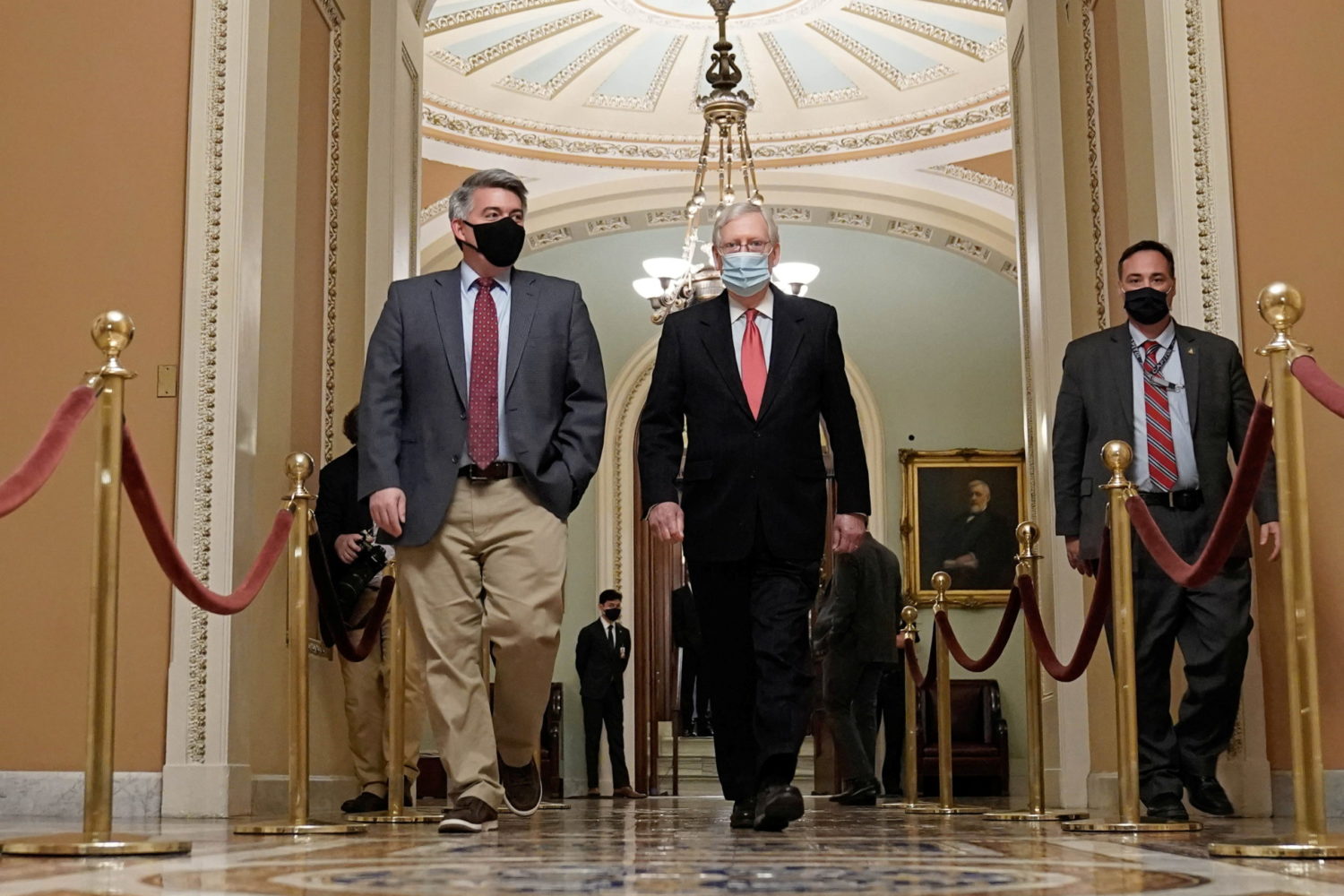
By Richard Cowan and Andy Sullivan
WASHINGTON (Reuters) – The U.S. Congress on Monday approved an $892 billion coronavirus aid package, throwing a lifeline to the nation’s pandemic-battered economy after months of inaction, while also keeping the federal government funded.
President Donald Trump is expected to sign the package into law.
Following days of furious negotiation, both legislative chambers worked deep into the night to pass the bill – worth about $2.3 trillion including spending for the rest of the fiscal year – with the House of Representatives first approving it and the Senate following suit several hours later in a bipartisan 92-6 vote.
The virus relief bill includes $600 payments to most Americans as well as additional payments to the millions of people thrown out of work during the COVID-19 pandemic, just as a larger round of benefits is due to expire on Saturday.
The stimulus package, the first congressionally approved aid since April, comes as the pandemic is accelerating in the United States, infecting more than 214,000 people every day and slowing the economic recovery. More than 317,000 Americans have died.
House Speaker Nancy Pelosi, a Democrat, said she supported the virus relief bill even though it did not include the direct aid for state and local governments that Democrats had sought. The bill, she said, “doesn’t go all the way but it takes us down the path.”
Republican Representative Hal Rogers, who also supported the package, said “it reflects a fair compromise.”
At 5,593 pages, the wide-ranging bill that also spends $1.4 trillion on an array of federal programs through the end of the fiscal year in September, is likely to be the final major piece of legislation for the 116th Congress that expires on Jan. 3. Congress included a measure continuing current levels of government spending for seven days, ensuring no interruption to federal operations.
MCCONNELL CLAIMS VICTORY
It has a net cost of roughly $350 billion for coronavirus relief, Republican Senate Majority Leader Mitch McConnell said, adding that more than $500 billion in funding comes from unspent money Congress had authorized.
Both Democrats and Republicans claimed victory but McConnell argued that the final bill came close to what Democrats rejected months ago as insufficient.
The measure ended up far less than the $3 trillion called for in a bill that passed the Democratic-controlled House in May, which the Republican-controlled Senate ignored.
“Compare the shape of this major agreement with the shape of what I proposed all the way back in late July. Yes, some fine details are different,” McConnell said in a statement after the vote. “There is no doubt this new agreement contains input from our Democratic colleagues. It is bipartisan. But these matters could have been settled long ago.”
A months-long impasse on relief that played in the background of the U.S. presidential election was broken after a group of centrist lawmakers from both parties put forward a proposal that served as a framework for the final bill.
Even so, the bill was so unwieldy that it caused congressional computers to malfunction. It includes a hodgepodge of tax breaks and other proposals that failed to pass on their own, including two new Smithsonian museums and limits on surprise medical billing.
The legislation also renews a small-business lending program by about $284 billion and steers money to schools, airlines, transit systems and vaccine distribution.
PUBLIC COMPANIES EXCLUDED
The small-business loan and grant program, known as the Paycheck Protection Program, would exclude publicly traded companies from eligibility.
State and local governments, which are struggling to pay for the distribution of newly approved COVID-19 vaccines, would receive $8.75 billion from Washington, with $300 million of that targeted at vaccinations in minority and high-risk populations.
The deal, worked out in a rare weekend session of Congress, omits the thorniest sticking points, which included Republicans’ desire for a liability shield to protect businesses from coronavirus-related lawsuits as well as Democrats’ request for a large outlay of money for cash-strapped state and local governments.
If signed into law, the bill would be the second-largest stimulus package in U.S. history, behind the roughly $2 trillion aid bill passed in March. Experts said that money played a critical role as social-distancing measures shuttered wide swaths of the economy.
(Reporting by Richard Cowan and Andy Sullivan in Washington; Additional reporting by Susan Heavey and Lisa Lambert in Washington; Writing by James Oliphant; Editing by Scott Malone, Matthew Lewis and Peter Cooney)












